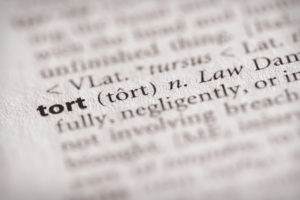Starting September 1, 2017, a law signed by Governor Greg Abbot will take effect that makes texting while behind the wheel of an automobile a misdemeanor that can be punished by a fine between $25 and $99 for first time offenders and up to $200 for those who have yet to learn their lesson.
This is not the first time that the Lone Star State has tried to enact similar bans. Each time, the legislation was either vetoed by the then governor or died on the floor of the Senate. Before this, Texas did successfully pass laws that made using a cellphone or texting while traveling through school zones illegal in addition to texting while driving by anyone under the age of 18.
Supporters of the legislation hope that this next step will have an even broader effect on a growing problem—currently, the Texas Department of Transportation (TxDOT) claims that 1 in 5 crashes involve driver distraction. In 2016, that amounted to 455 people killed by distracted driving and 3,000 seriously injured.
Some say that the effectiveness of the bill remains to be seen. Others point to the convoluted way in which the law is written could allow drivers to explain their way out of a ticket. For instance, texting and driving is against the law, as well as sending emails or reading messages on your phone while the vehicle is moving. Yet, you are allowed to use your phone to change the radio station, check on traffic, or get directions. You also can talk on the phone while you drive, even if you don’t have a hands-free device. So who is to say exactly what you were doing with your phone when?
State legislators don’t believe the new bill is perfect. It is a first step, and, looking forward, they would like to create even stronger laws. Currently, many Texas cities have local ordinances that ban texting and driving; but these would be overridden by a stronger state law if one is passed.

A trial lawyer for over 20 years, Bryan Pope is dedicated to fighting for justice while defending the rights of his clients. Bryan's influence often goes further—helping clients to navigate life-altering events and overwhelming grief. In addition to other areas of practice, Bryan specializes in helping sufferers of CRPS/RSD—a debilitating condition in which his in-depth knowledge enables him to lecture to other lawyers around the nation while also serving as a current chair for a CRPS/RSD organization.










Comments for this article are closed.